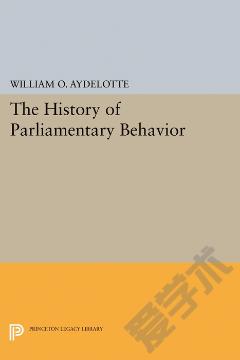The History of Parliamentary Behavior
In this volume thirteen american and european scholars show how a variety of mathematical tools may be used to attack major questions in the history of parliamentary behavior. Their essays treat key topics related to the varied but comparable circumstances of seven countries. These topics include: recruitment and career patterns; actions and decisions of legislators as revealed by their roll call votes; and hypotheses that might help explain legislative behavior. Historians have long been interested in the study of parliaments, but the recent application of quantitative techniques has made possible the effective use of data too voluminous to be comprehended by traditional methods.
{{comment.content}}








 京公网安备 11010802027623号
京公网安备 11010802027623号